Coronavirus Australia: Minister Lisa Neville and Martin Pakula deny knowing who decided to use security guards
Victoria’s Jobs Minister and Police Minister say they did not know who took the decision to use private security guards.
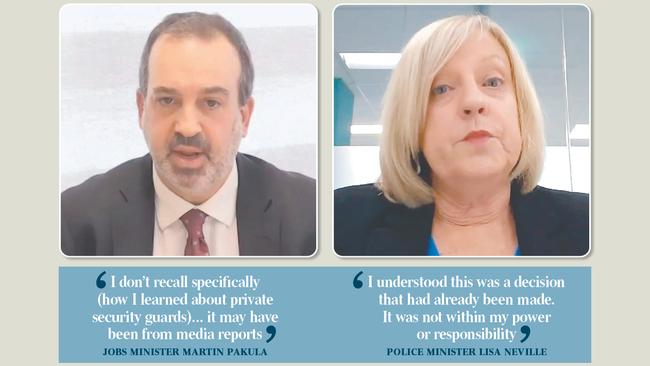
Victorian Jobs Minister Martin Pakula says he did not know who took the decision to use private security guards in the state’s hotel quarantine program as Police Minister Lisa Neville says she learned of the decision only after it had already been taken.
As the first minister to give evidence to the inquiry into the state’s hotel quarantine program — blamed for launching the second COVID-19 wave, which locked down Melbourne — Mr Pakula said he also did not know that his own department was entering into contracts with private firms to provide the security. Ms Neville, appearing after him, said the decision to engage guards was taken without then chief police commissioner Graham Ashton being consulted, and she only heard about it after the decision had been made.
The ministers’ evidence that they did not know who made the decision comes after seven senior Victorian government officials also told the inquiry they did not know who decided to use the private security guards linked to the virus escaping quarantine.
Ahead of the appearance by Health Minister Jenny Mikakos at the hotels inquiry on Thursday, Mr Pakula effectively rebuffed claims by her top bureaucrat that his department shared accountability for the troubled scheme that sparked the state’s second wave, insisting the Department of Health and Human Services was “in charge” and had “overall responsibility”.
After Mr Pakula’s Department of Jobs, Precincts and Regions was told on March 27 it would be the lead agency for the quarantine program that came into operation the next night, departmental staff quickly sourced companies and subsequently entered into contracts.
However, as early as March 28, the Department of Health and Human Services took over the lead role for the program.
DHHS secretary Kym Peake told the inquiry both departments had “shared accountability”.
But Mr Pakula said it was quite clear from March 28 that DHHS was the control agency and DJPR had a role assisting with discrete responsibilities. “I wouldn’t seek to characterise it in any way other than …. there was, to my understanding, one department which was in charge, if you like, and had overall responsibility, and my department, whose role was to assist the control agency, which was in this case DHHS,” he said.
He said it would have been preferable if the agency with overall responsibility, DHHS, had also managed the security contracts.
Ms Peake told the inquiry it was a “matter of profound regret” to her as the DHHS secretary that “we experienced a second wave … and all of the consequences that came with that”. But she maintained that the security guards were the responsibility of the DJPR.
Arthur Moses SC, representing Unified Security, asked Ms Peake whether the language “you have been using of joint operations and shared responsibility … is bureaucratic speak avoiding the responsibility of your department as set out in that plan. Do you accept that?”
Ms Peake said: “No, I do not accept that at all.”
She said she did not tell Premier Daniel Andrews or Ms Mikakos that Chief Health Officer Brett Sutton and his deputy Annaliese van Diemen endorsed an email sent by the Deputy Public Health Commander, Finn Romanes, that the program needed more public health input.
Ms Neville said she first heard about the proposed use of private security at a March 27 meeting with Mr Ashton and Emergency Management Commissioner Andrew Crisp.
Mr Crisp has told the inquiry he did not think it would have been him who first raised at the meeting the proposed use of private security.
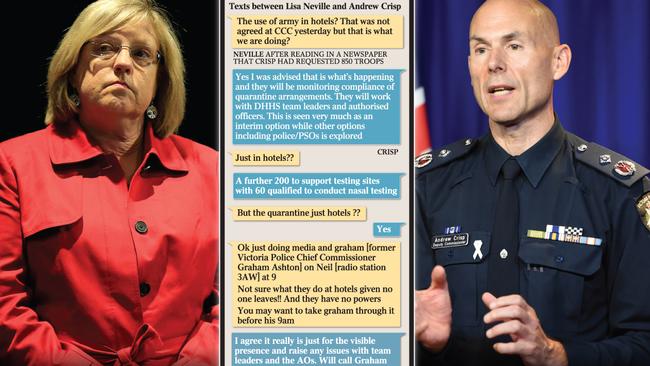
Ms Neville said she was aware of his evidence and “maybe it was Mr Ashton …. but my best recollection is that it was Commissioner Crisp”.
She said her expectation was that the decision to engage private security should have been made in consultation with Mr Ashton. She agreed with his evidence that he was not consulted and it was presented to him as a “decision that had already been made”
She was told the DJPR would be responsible for “standing up” the program, but she understood the scheme was under the “ultimate control” of the DHHS.
Ms Neville said she was “slightly cranky” when she learnt through the media that Victoria had requested 850 troops to assist with hotel quarantine. She said she learned Mr Crisp had made the June 24 request when she read the Herald Sun on June 25.
In a tense text exchange between Ms Neville and Mr Crisp shown to the inquiry on Wednesday, the minister said: “The use of army in hotels? That was not agreed at CCC yesterday but that is what we are doing?”
Mr Crisp replies: “Yes I was advised that is what’s happening and they will be monitoring compliance of quarantine arrangements.”
Later, Ms Neville said: “Okay just doing media and graham (Ashton) on Neil (radio station 3AW) at 9. Not sure what they do at hotels given no one leaves!!’’
Ms Neville said she used two exclamation marks because she “was still slightly cranky” and annoyed that the request had been made without consulting her. The June 24 request was rescinded less than 24 hours after it was made by Mr Crisp

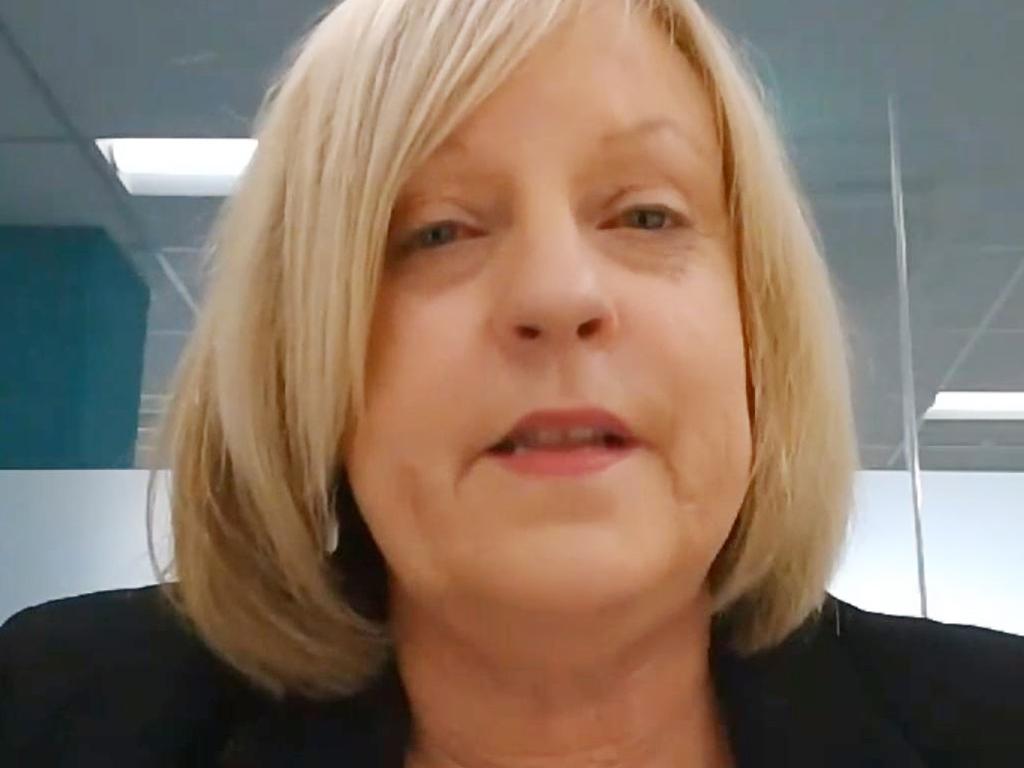

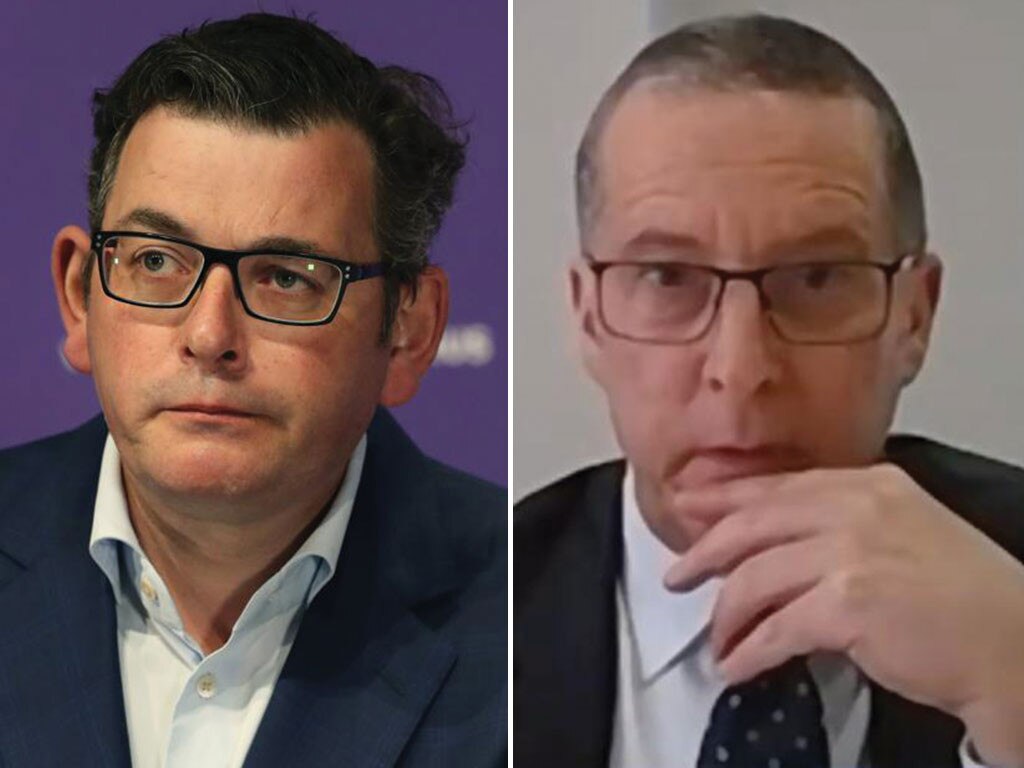
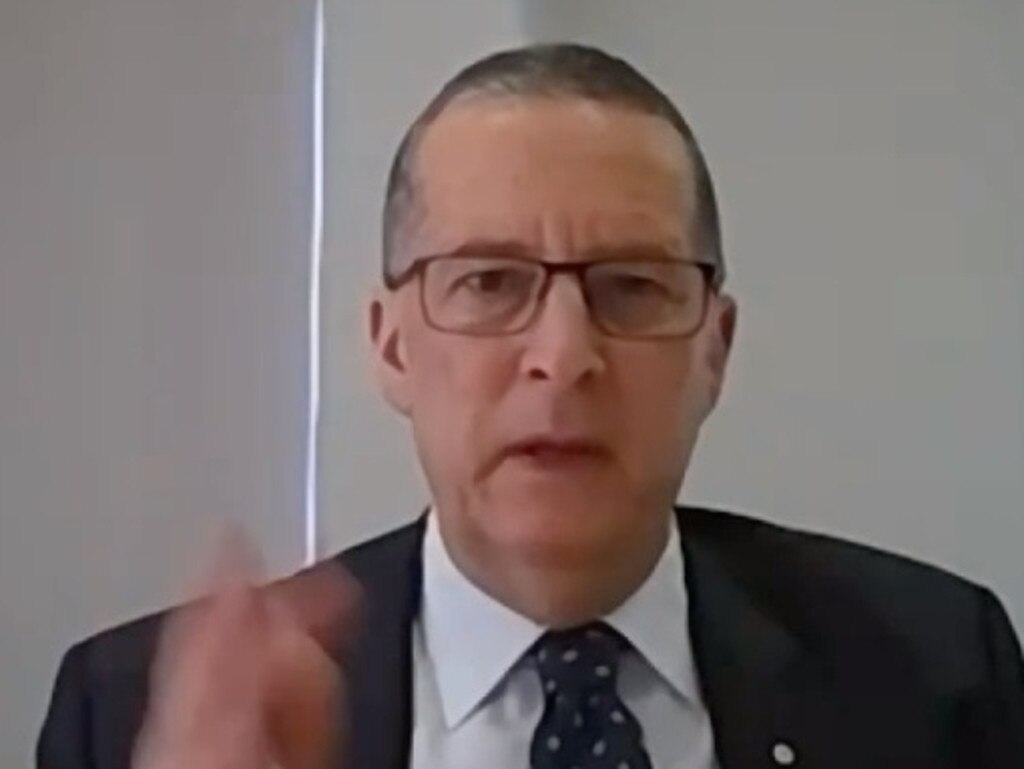


To join the conversation, please log in. Don't have an account? Register
Join the conversation, you are commenting as Logout